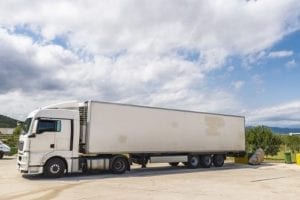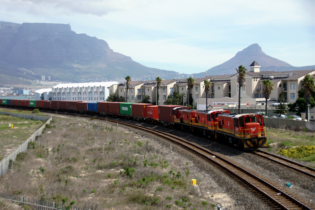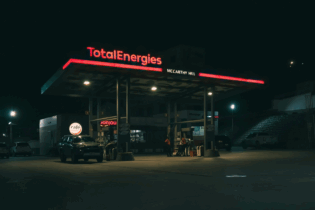Africa’s first refrigerated test chamber for the refrigerated transport sector would not only reduce greenhouse gases, but also lower the fuel consumption of refrigerated units, learns Tristan Wiggill.
Michael Schuster, advisor to the GIZ German Development Agency, is in charge of a transport refrigeration project that will implement new technologies, improve energy efficiencies, and reduce the carbon footprint in transport. He is busy setting up a technology corporation with local industry players – partners, companies, and associations – as well as contacting research and development experts. Schuster’s main partners in the project are the departments of Trade and Industry, Environmental Affairs, and Transport. Having completed a sector analysis, he realised that operators of refrigerated vehicles in South Africa might spend, say, R1 million on a big refrigerated trailer. At the moment, however, there is no scientific way of knowing how good that trailer’s insulation is. In Europe, special test chambers provide accurate and measurable insulation values, while in South Africa, you buy a trailer and trust that it’s adequately insulated. Chambers, please! The formation of a local test chamber will allow the transport sector to save fuel and reduce its emissions. It will also assist the domestic industry – specifically the trailer/body manufacturers – to enhance the insulation qualities of their products. While locally built trailers are known for their durability, thermal performance is largely unknown, with sealing and insulation properties immeasurable. Once that test chamber is in place, a certain requirement for similar performance would be created. At the moment, it’s difficult for the local industry to arrive at the equivalent European value. While there may be a South African equal, the trailer/body manufacturers will need support if they are to improve their products and attain higher insulation values.Apart from the infrastructure required, there is also a need for a vehicle testing standard. In this regard, the South African Bureau of Standards has been approached, with a view to create a subcommittee on thermal performance for refrigerated transport. Specific South African requirements will have to be considered.
By matching European insulation standards, local operators could save anywhere between R3 500 and R5 000 per vehicle, per annum. Schuster says local trailer manufacturers have been offered technical support from a number of European consultants. These consultants will provide manufacturing and design support in order to build a test chamber prototype. Each of the five local trailer manufacturers involved are required to build a prototype by the first quarter of 2016, with each receiving individual European support. Schuster says a tool will be provided in order to calculate approximate thermal performance in advance, thereby reducing the failure rate. Phase-out South Africa is currently phasing out certain refrigerants that are harmful to the ozone layer. A new transport refrigeration system, which uses hydrocarbons instead of propane, is also being developed. If this is put into the market, it would be the world’s first transport refrigeration unit with a natural return. While the prototype is ready, it has to be rigorously tested – inside and outside of trucks – due to the flammability of propane. Once these units have been proven to be safe, a trial period can commence for possible use in 2016. But the best truck or refrigeration equipment won’t help if drivers leave their doors open or if perishables are left standing in the sun. As a result, a training course has been set up to educate drivers on refrigerated transport issues, together with the Open Trade Training Centre. Schuster adds that he’d like to set up a training course on cold-chain logistics that would become a best practice guide in technology, software, and training. The content is currently being developed and will be provided to interested institutions once finalised.






